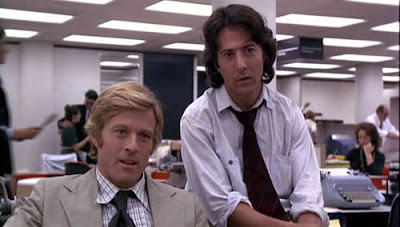First published in the Western People on Monday.
In Ireland, we are familiar with black holes. One will start broadcasting against this Friday night at nine-thirty on RTÉ 1, holding all otherwise sentient, sensible people in its iron grasp for the next two and a half hours.
People once thought that the Late Late Show couldn’t survive Gay Byrne’s retirement. They’ve had to think again – although Uncle Gaybo has never really gone away, his last Late Late Show was fifteen years ago. And still the show goes on after him, Friday after Friday, year after year.
It is not entirely unreasonable to expect that, should the direst of warnings come true and Ireland is three feet underwater as a result of global warming, or the proliferation of windfarms and pylons and the Lord knows what has left the green isle of Erin habitable only by rats, badgers and the rougher sort of insect, there will still be a tower in Montrose that will fizzle fitfully into life every Friday in autumn, winter and spring to announce that tonight, ladies and gentlemen, it’s the Late Late Show, and here is your host ...
Being the host of the Late Late Show is, supposedly, the premier job in Irish broadcasting. This is the reason RTÉ has historically paid its stars great pots of money for the apparently straightforward job of asking some British soap opera star how much she liked visiting Ireland and if, perhaps, she had any relations here. If someone like Pat Kenny wasn’t paid a big ball of money, the fear was that he would go somewhere else, and take all his listenership with him, like the Pied Piper of Hamelin.
The interesting thing is that the bluff has been called. Newstalk made Pat Kenny an offer he couldn’t refuse last year and so Kenny left RTÉ after forty years to do his old show for a new boss. Newstalk’s plan was that Pat’s pipes would sound from Marconi house, and Kenny’s loyal listenership would obey the massive advertising campaign to “move the dial” and follow their leader.
Except that’s not what happened at all. The latest figures are that Pat Kenny’s radio show on Newstalk gets 143,000 listeners, while Pat’s old show in RTÉ, now hosted by Seán O’Rourke, gets 307,000. That’s a hiding by double scores in anybody’s language.
The nation now has solid field data about what happens when a big star moves. Nothing is what happens when a big star moves. RTÉ get someone else, and someone else becomes a star instead. And what is the result of this? UTV come along and offer Pat even more money to do a Late Late-style show for them, once they get up and running. If this column were ever in a position to interview Pat Kenny, the first question would be “can you believe your luck?”
Pat Kenny’s successor as host of the Late Late Show, Ryan Tubridy, is equally blessed in having a career that seems impervious to the market’s opinion of him. In one way, Tubridy was given the media equivalent of a hospital pass when he was asked to replace Gerry Ryan in the 2FM schedule after Ryan’s sudden death. Ryan was not everyone’s cup of tea but those who liked him, loved him. And those who loved Gerry Ryan are not impressed by his replacement.
But in the bigger picture, the poor radio figures don’t really matter. What is amazing about Tubridy is that in the age of the world wide web, internet streaming, Netflix, Sky plus, digital TV and more, Irish adults will sit down on Friday and watch the Late Late Show, let it matter a damn who’s on it as a guest or who’s presenting the show. It could be Ryan Tubridy interviewing Miriam O’Callaghan or Miriam O’Callaghan interviewing Ryan Tubridy. There’s no real difference. It’s Friday night, and this is what we do.
Ryan Tubridy’s Late Late Show isn’t the worst show of its kind on television. That strange show RTÉ broadcast after the nine o’clock news on Saturday night is surely the racing favourite for that dustbin honour. In fact, that show is so far from good it’s hard to understand why it’s not on TV3.
The galling thing is that the Late Late Show isn’t meant to be a show that isn’t the worst show on television. It’s meant to be the best show on television, the show that holds a mirror up to Ireland as this great nation of talkers and wits discuss and debate the great issues of day, from Ireland’s role in Europe to whether the nation should simply put Brian Cody in charge of everything and be done with it.
That is very different from listening to comedian Des Bishop, economist David McWilliams, stylist Lisa Fitzpatrick and Dolores Kehoe. Who on earth is Dolores Kehoe? Who cares what the other three think about anything?
Writing in the Irish Times about Tubridy’s unhappy radio listenership figures, Laura Slattery suggested that the problem wasn’t Tubridy but RTÉ management, for asking Tubridy to do a job for which he clearly isn’t suited. But it’s easy to see how RTÉ management could be puzzled by Tubridy, as he’s not suited to presenting a TV show that holds a mirror to a nation either, and the figures for that show are solid as the rock of Gibraltar.
The answer, as is often the case, lies closer to home. It’s us. It’s the nation. The people of Ireland would watch the Late Late Show even if were presented by Lorcan Murray and featured the cast of Fair City reading tweets of the week. What incentive is there for the Late Late Show to be any good if there’s no disincentive for it to be awful? Why can’t we move the dial? Why do we feel we have to do what we’ve always done? What’s the matter with us?












